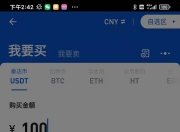
在这个信息化高速发展的时代,区块链技术作为新兴的数字账本技术,正逐渐渗透到各行各业,其中供应链管理领域尤其引人注目。随着全球贸易的复杂化和消费者对产品透明度需求的提升,传统供应链管理模式面临的挑战日益凸显。本文AJE美国期刊专家将深入探讨区块链技术如何重塑供应链管理,带来前所未有的透明度、安全性和效率,并在结尾处提出一个引发思考的问题,鼓励读者参与讨论。
In this age of rapid information-based growth, block-chain technology, as an emerging digital book technology, is gradually gaining ground in a variety of industries, particularly in the area of supply chain management. As global trade is complicated and consumer demand for product transparency rises, the challenges facing traditional supply-chain management models are becoming increasingly evident. This AJE American journal experts will explore in depth how block-chain technology can reshape supply-chain management, bringing unprecedented transparency, security and efficiency, and will end with a question that inspires reflection and encourages readers to participate in the discussion.
一、供应链管理的传统痛点
Traditional pain spots in supply chain management
供应链,这个涉及原材料采购、生产制造、物流运输、分销直至最终消费者的长链条,长期以来饱受信息不对称、数据孤岛、信任缺失等问题困扰。例如,伪造产品追溯信息、库存管理不准确导致的供需失衡、以及因合同纠纷引起的法律诉讼等,这些不仅增加了企业的运营成本,也损害了消费者的利益。
Supply chains, which involve the purchase of raw materials, manufacturing, logistics transport, distribution up to the end of consumers, have long been plagued by information asymmetry, data silos, lack of trust. For example, the falsification of retrospective information on products, the imbalance between supply and demand resulting from inaccurate inventory management, and legal proceedings arising from contractual disputes have not only increased the operating costs of enterprises, but also harmed consumers.
二、区块链技术的特性与优势
II. Features and advantages of block chain technology
区块链,以其去中心化、不可篡改、透明度高和智能合约等特点,为解决上述问题提供了新的思路。
Block chains, characterized by decentralisation, non-frozen, high transparency and smart contracts, provide new ideas to address these issues.
1. 去中心化:所有交易记录分布在网络的每个节点上,消除了单点故障风险,提高了系统的稳定性和安全性。
Decentralization: All transaction records are distributed on each node of the network, eliminating single point failure risks and improving system stability and security.
2. 不可篡改性:一旦数据被记录在区块链上,就无法被修改或删除,确保了信息的真实性与可靠性。
2. Non-frozen: once data are recorded on the block chain, they cannot be modified or deleted to ensure the authenticity and reliability of the information.
3. 透明度:供应链上的每一环节都能实时查看到商品的流转状态,增强了各参与方之间的信任。
3. Transparency: Real-time viewing of the flow of commodities at every point in the supply chain enhances confidence among participants.
4. 智能合约:自动执行合同条款,减少人为干预,降低了交易成本和纠纷风险。
4. Smart contracts: Automatic enforcement of contract terms, reduced human intervention and reduced transaction costs and dispute risk.
三、区块链在供应链管理中的具体应用
Specific applications of block chains in supply chain management
1. 产品溯源:通过区块链记录产品的全生命周期信息,从原材料来源、生产加工、检验检疫到最终销售,消费者只需扫描二维码即可获取完整可信的产品追溯信息,有效打击假冒伪劣产品。
Product traceability: Recording of product life-cycle information through block chains, from source of raw materials, production processing, quarantine to final sale. Consumers need only scan two-dimensional codes to obtain complete and credible product retrospective information to effectively combat counterfeit products.
2. 库存与物流优化:区块链技术可以实时共享库存数据,帮助企业精准预测需求,减少过度生产和库存积压。同时,通过智能合约自动处理物流过程中的支付、交货确认等环节,提高物流效率。
2. Stock and logistics optimization: Block chain technology allows real-time sharing of inventory data, helps enterprises to accurately predict demand and reduce excessive production and inventory backlogs, while improving logistics efficiency through the automatic processing of payments and delivery confirmations in the logistics process through smart contracts.
3. 融资与信贷:中小企业往往因信用评估难而难以获得贷款。区块链技术能够提供真实、透明的交易记录,帮助金融机构更准确地评估企业信用,降低贷款风险,促进供应链金融的发展。
Finance and credit: SMEs often have difficulty accessing credit because credit evaluation is difficult. Block-chain technology can provide a true and transparent record of transactions that helps financial institutions to assess business credit more accurately, reduce loan risk and promote supply chain finance.
四、挑战与未来展望
Challenges and prospects for the future
尽管区块链技术在供应链管理中展现出巨大潜力,但仍面临技术成熟度、法规监管、标准化建设等挑战。如何保障数据隐私、实现跨链互操作性、以及培养行业共识,是当前研究与实践亟待解决的问题。
Although block chain technology has shown great potential in supply chain management, it still faces the challenges of technological maturity, regulatory regulation, standardization, etc. How to safeguard data privacy, achieve interoperability across chains, and foster industry consensus are issues that need to be addressed by current research and practice.
结语:一场关于信任与透明的革命
Conclusion: a revolution on trust and transparency
区块链技术在供应链管理中的应用,不仅是技术层面的革新,更是对传统信任机制的一次深刻重构。它让我们重新审视信息的价值,思考如何在保护隐私的同时,构建一个更加开放、透明、高效的合作环境。然而,这场革命才刚刚开始,我们不禁要问:
The application of block chain technology in supply chain management is not just a technological innovation, but a profound re-engineering of traditional trust mechanisms. It allows us to re-examine the value of information and think about how to build a more open, transparent and efficient cooperative environment while protecting privacy. However, this revolution is just beginning, and we have to ask:
在未来的供应链体系中,区块链技术能否彻底消除信息不对称,实现完全的透明与信任?又或者,这种高度透明是否会引发新的隐私与安全挑战?
Will block chain technology completely eliminate information asymmetries and achieve full transparency and trust in future supply chain systems? Or will this high level of transparency raise new privacy and security challenges?
这个问题的答案,或许就掌握在每一位参与者手中。作为技术的使用者、监管者或是消费者,你的观点与行动,都将影响这场变革的走向。欢迎在评论区分享你的见解,让我们共同探讨区块链技术在供应链管理领域的无限可能。
The answer to this question may be in the hands of every participant. As technology users, regulators, or consumers, your views and actions will influence the course of change. You will be welcome to share your insights in the comment area and let us explore together the infinite possibilities of block chain technology in the area of supply chain management.
注册有任何问题请添加 微信:MVIP619 拉你进入群

打开微信扫一扫
添加客服
进入交流群





















发表评论